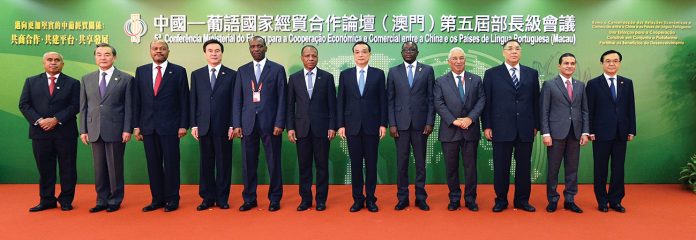The next ministerial conference should have been held in 2019. It was postponed without the reasons being clear at the time. Taking place next June, or later, because of Covid-19, it will have an agenda. Macau Business anticipates a list of topics. Some will be treated at this meeting, others not so.
MB May 2020 Special Report | Forum Macau: 17 years, old enough?
1st, convince member countries, especially China, to invest in multilateralism.
The more business is done bilaterally, the less meaningful the Forum Macau makes; besides that, “even though its formal structure may give the Forum a multilateral appearance, the procedures at the operational level uncover a different dynamic, marked by a balance skewed in China’s favour,” stated Chris Alden and Ana Cristina Alves.
2nd, increase international visibility
“The Forum Macau needs to keep this visibility investment for a long time, as it takes the risk of being politically forgotten. Visibility, culture, education (in cooperation with the academy), MICE (Meeting, Incentives, Conferences and Exhibitions) and funding, are elements capable of triggering new commercial, trade and investment initiatives, filling the gaps of bilateral cooperation,” says Francisco Leandro to Macau Business. The secretary general, Xu Yingzhen, recognized last year the need for greater projection and better information channels to “better serve” the commercial relations between China and the Portuguese-speaking countries, noting that the organization “needs to reach more people to serve cooperation better and implement more concrete results.”

3rd, to profoundly change the way the Fund for Cooperation works or to create another type of fund.
It may be easier to create a new fund, adapted to the small and medium-sized enterprises of the PSC, while maintaining the existing fund for big companies. But in this case, it seems to make sense that the fund managers are not exclusively Chinese.
4th, increase the importance of delegates.
At the moment the delegates are at the bottom of the structure; it seems clear that the greater their participation is, the more results will be achieved; “the biggest limitation of the Forum Macau seems to be that the working methodology is too centralised and the Secretariat’s activities are too focused in short term training courses for public officials in Macau or in China. In the PSC perspective it would be more useful and cheaper to send Chinese technicians to each country to administrate longer training programmes, which would capacitate a larger number of attendants,” Alden and Alves wrote.
5th, “the Macau Forum seems to remain very dependent on Chinese funds and agenda.”
“The evident discomfort with China’s dominant role suggests that these countries [the African ones] are not willing to be just at the receiving end but rather aspire to make their own inputs into the practices, policies and underlying norms of the Forum”, still Alden and Alves.

It’s just numbers
China and Macau use figures from trade exchanges between Beijing and each of the Forum’s member countries to show the success of the initiative.
But is this a valid criterion? Wouldn’t these exchanges take place with or without the Forum?
“It is difficult to assess the economic values of the Forum, as China continues to actively promote the bilateral plan. Initiatives such as the Forum constitute, above all, ‘charming operations’ of the Chinese government, in order to give visibility, in a politically correct tone, to the strategy of bringing China closer to Africa and the PSC,” is the opinion of Portuguese researcher Helena Rodrigues.
“It is impossible to quantify what is the real contribution of the Forum Macau to the increase in trade, or even investment or export of Chinese labour destined for PSC. Could it be that without its existence, economic exchanges between these countries wouldn’t have grown in the same magnitude, taking into account that within this group of countries are two major economic partners from China, Angola and Brazil?” asks another researcher, Sofia Gaspar, in her master’s thesis on this topic.
According to Ms Gaspar, “In terms of increased economic transactions, the usefulness of the Forum is subjective and difficult to measure, even for the Chinese and Macanese authorities. The increase in trade is the main official objective of the Forum Macau and taking into account that their contribution to their increase is not quantifiable, we have to ask ourselves about the Forum’s real intentions.”
“An organization such as the Forum Macau, must not be evaluated only by tangible results,” concedes Professor Francisco Leandro, City University of Macau. “The essence of the Chinese ‘fora policy’ (not only with the PSC) should be evaluated and measured in the long run as a mechanism to foster structural political cooperation for development, to promote sustainable investment, to promote trade and commerce, to enhance the human social capital, to increase the ability of corporate exchange and to advance multiculturalism,” argues the Assistant Dean, Institute for Research on Portuguese Speaking Countries.
























